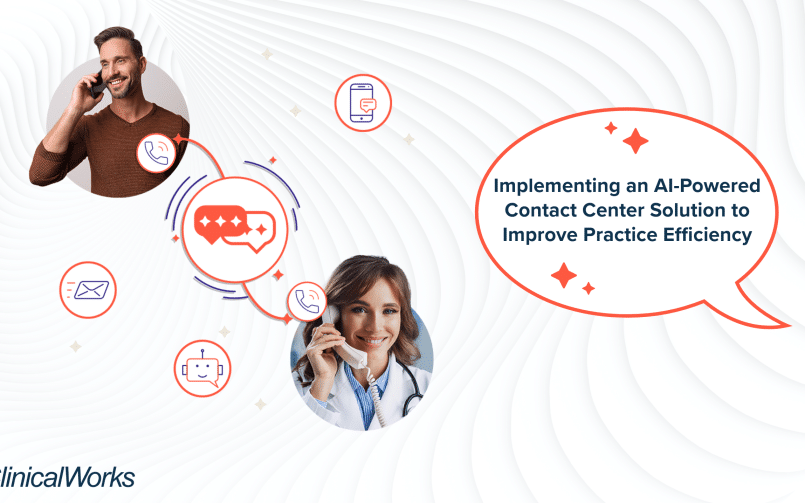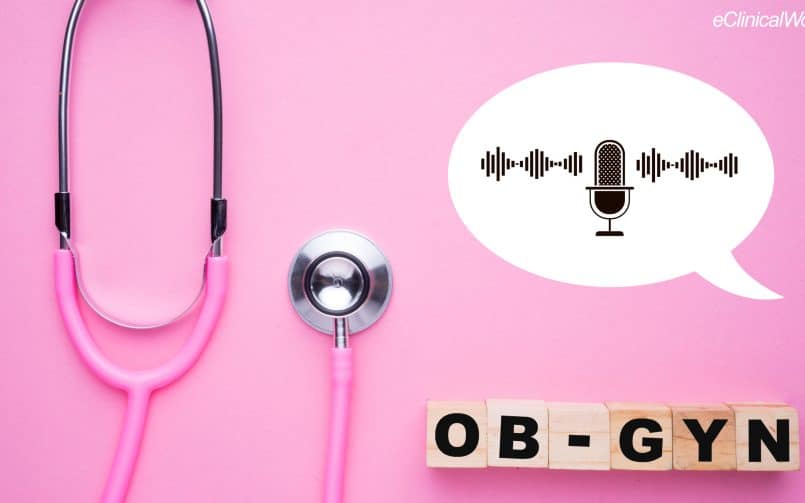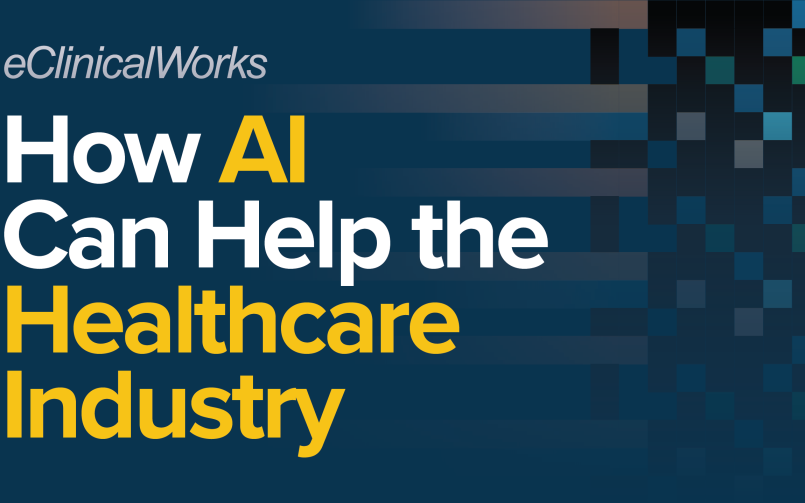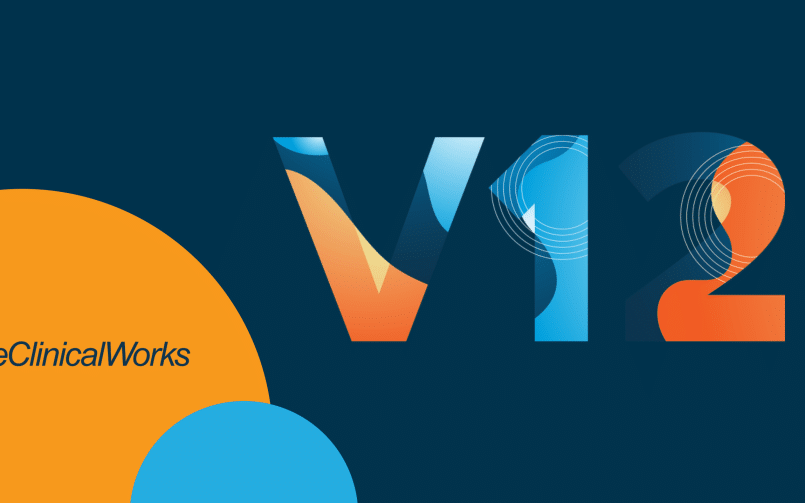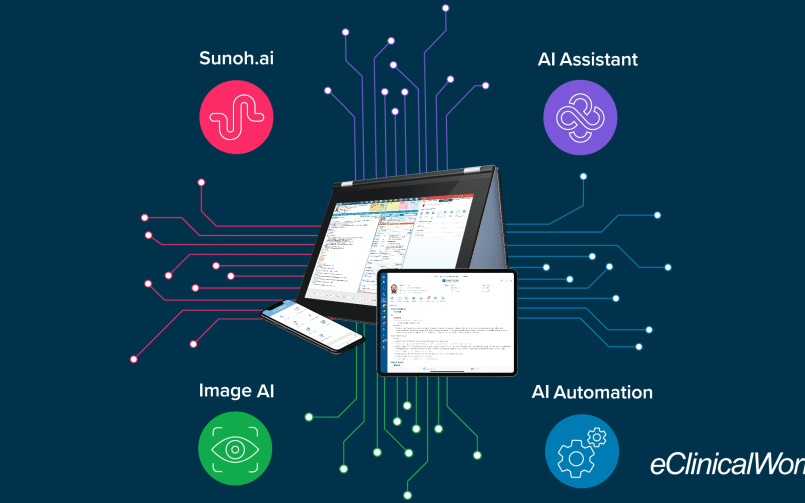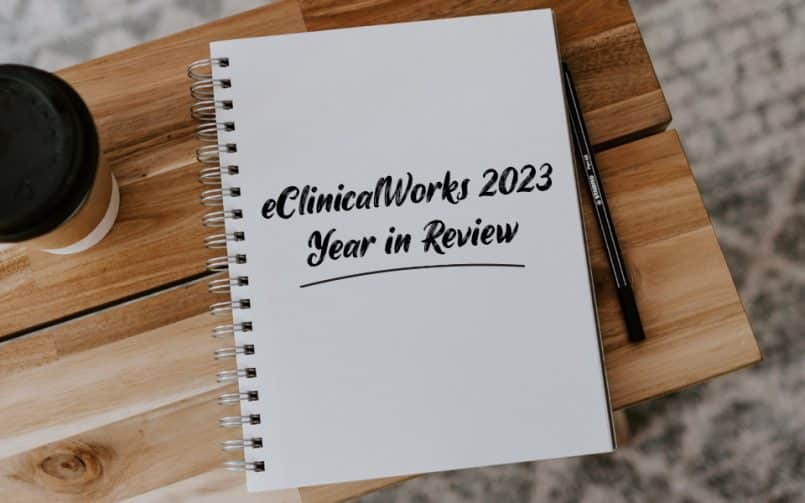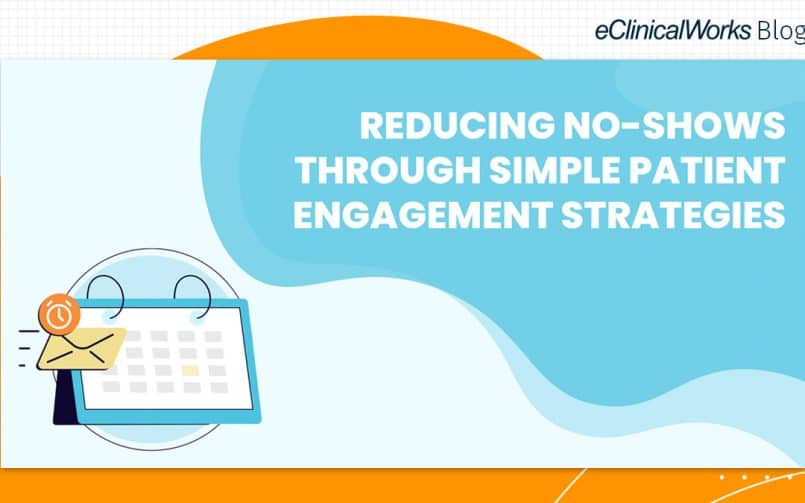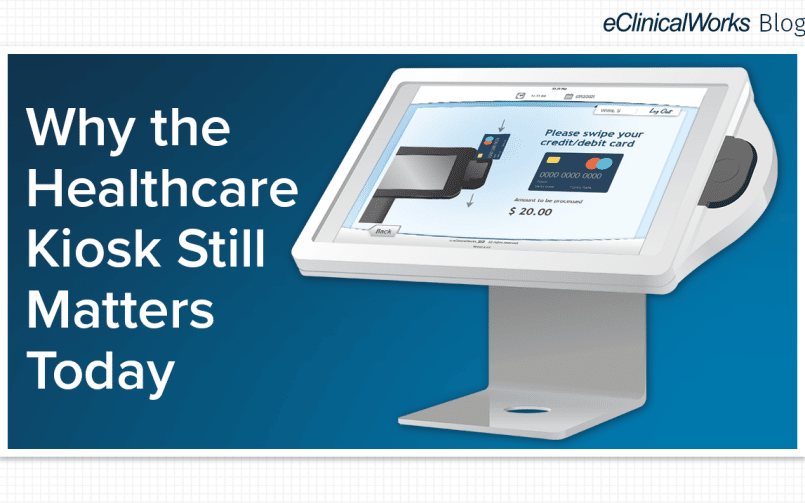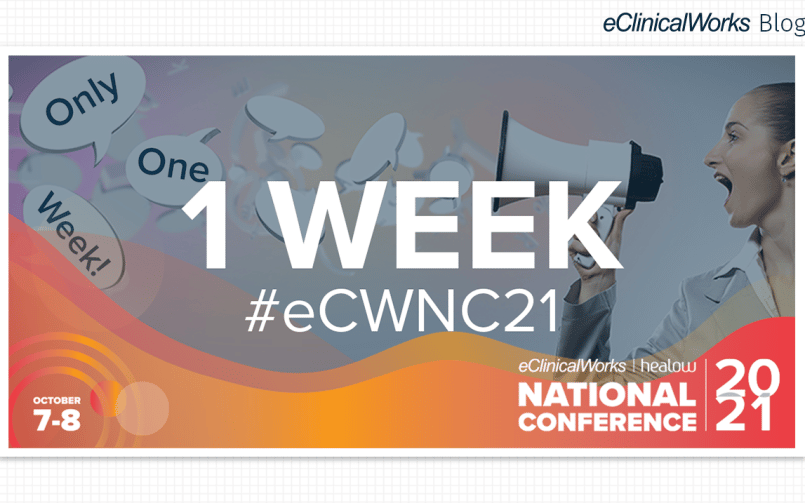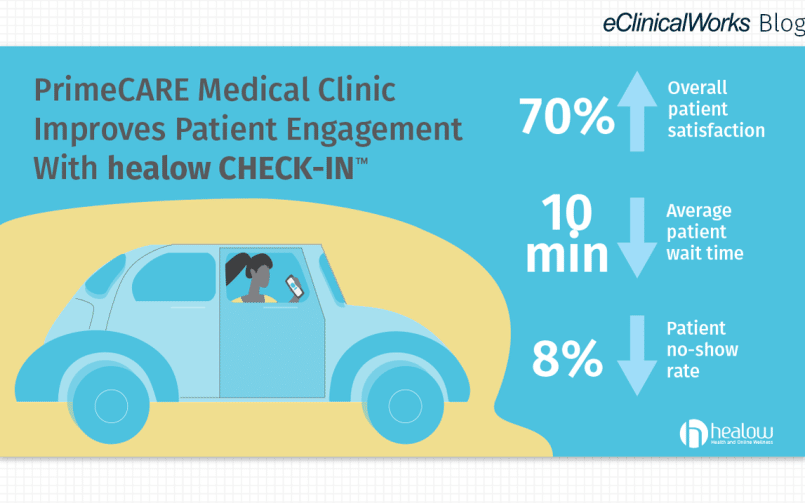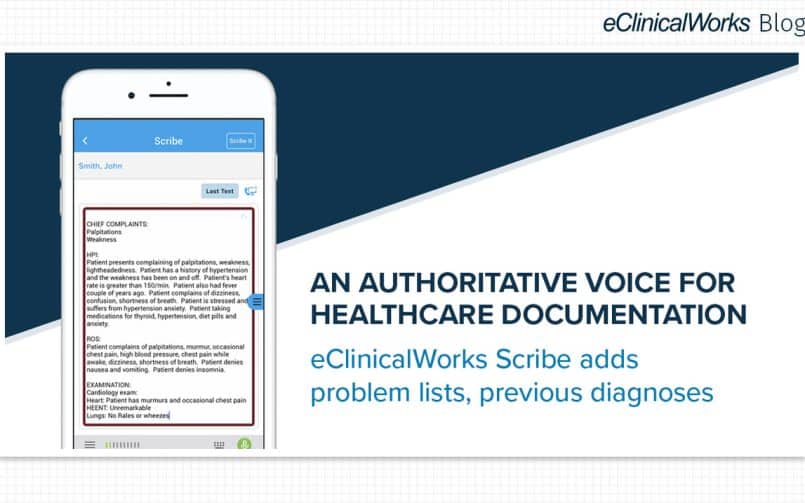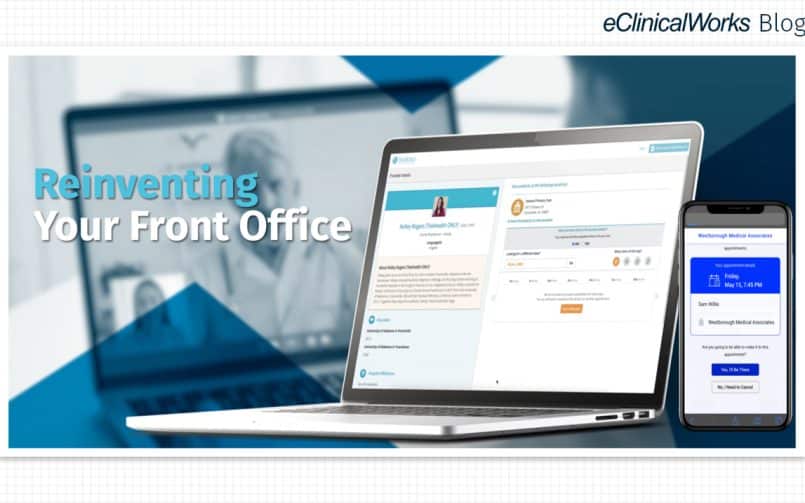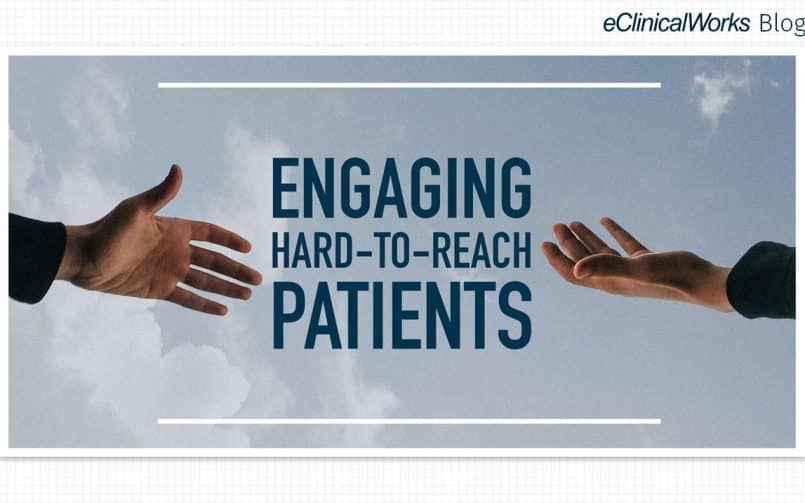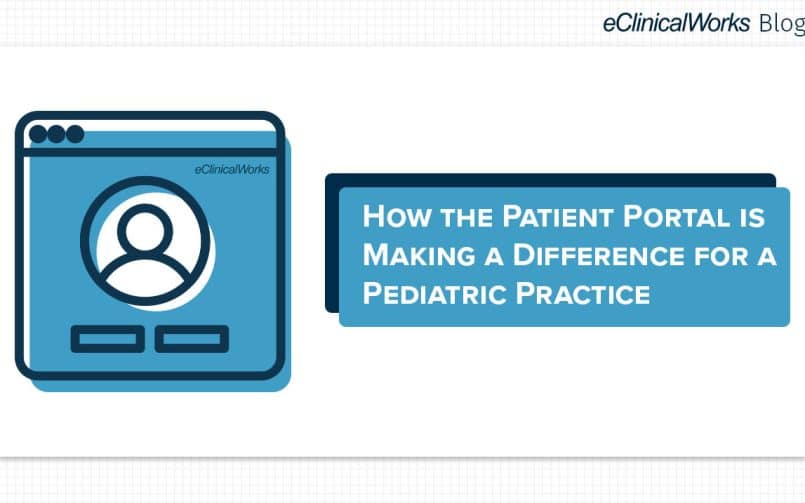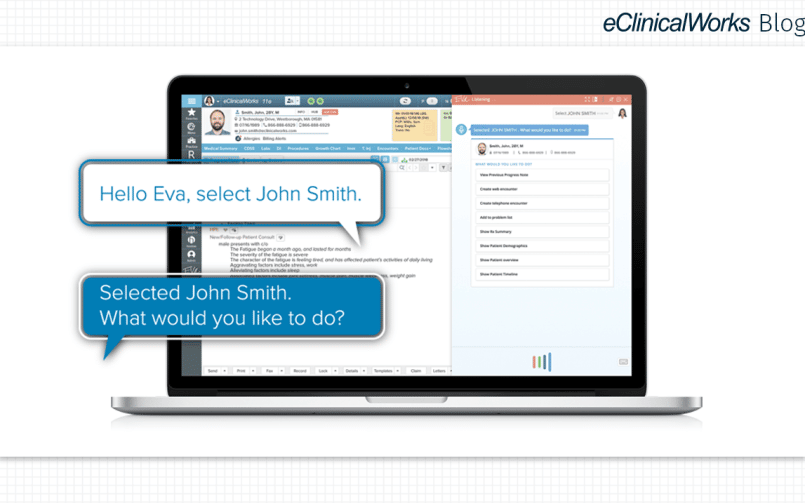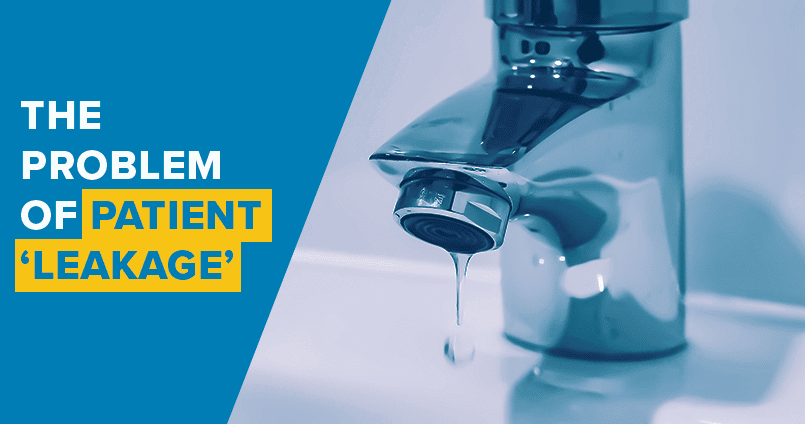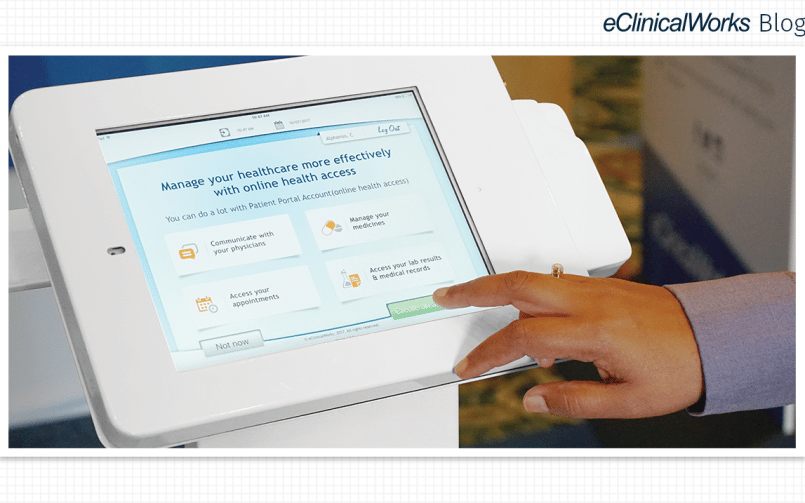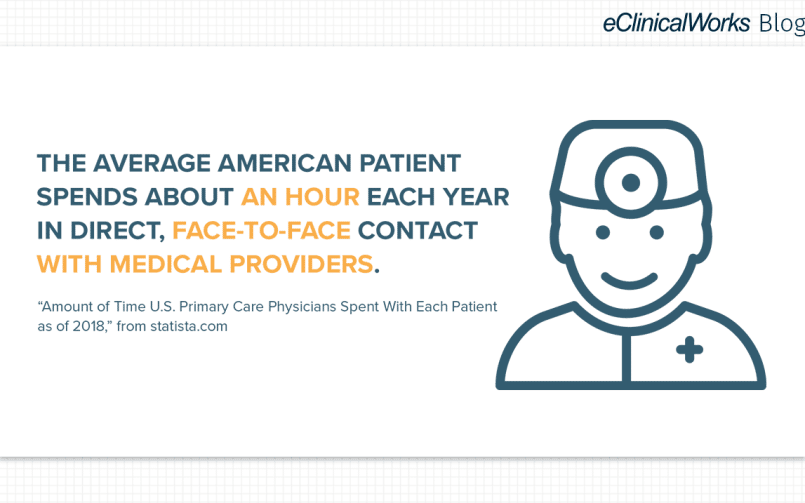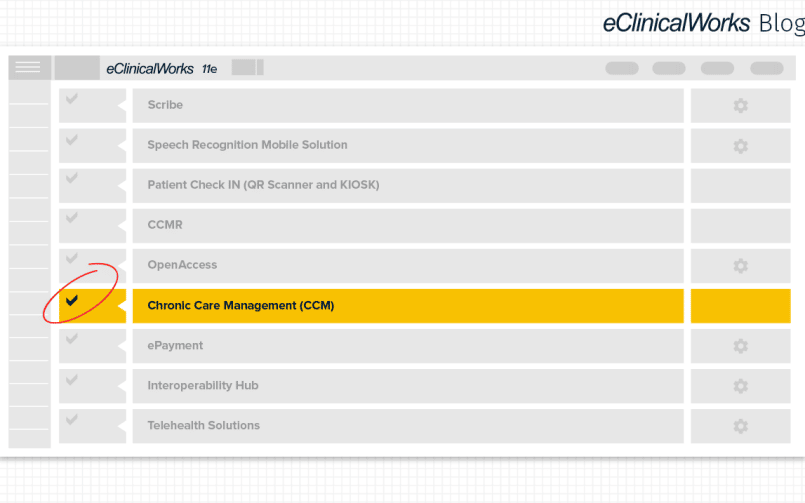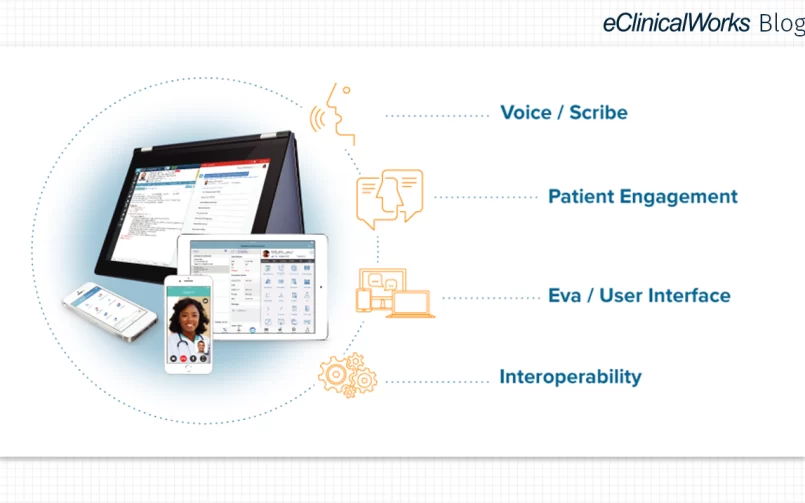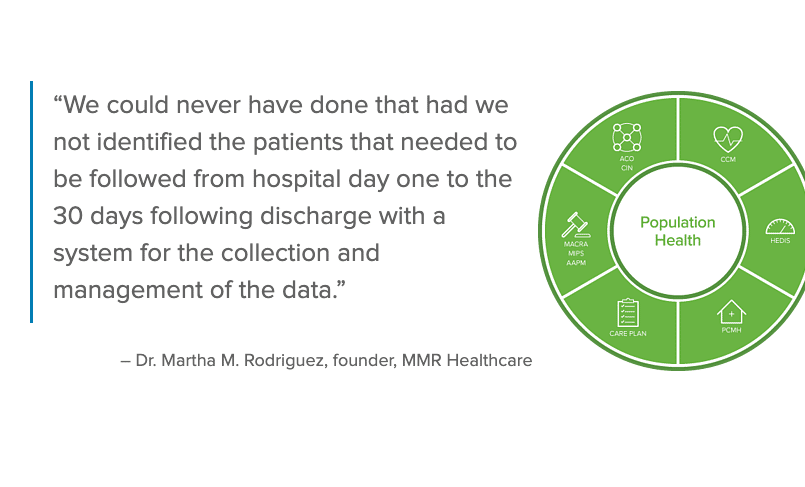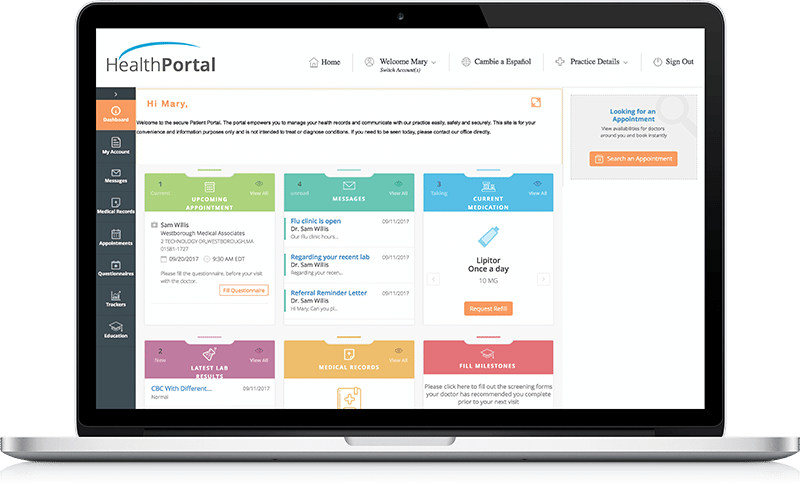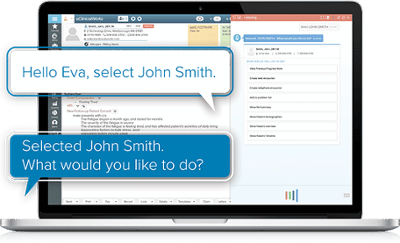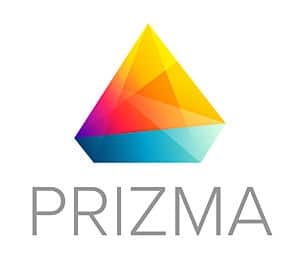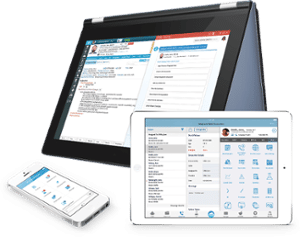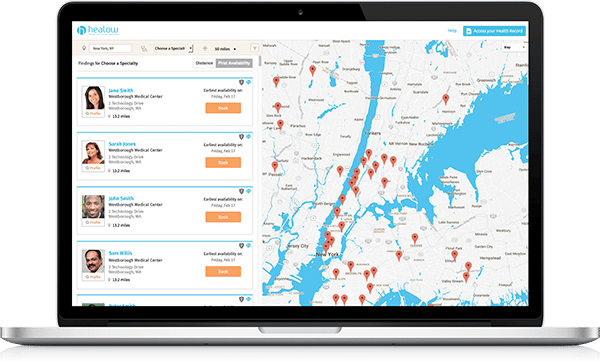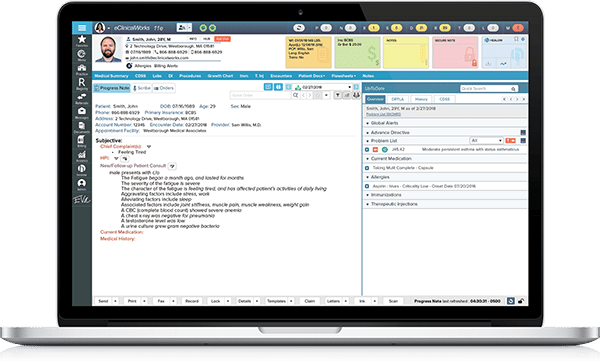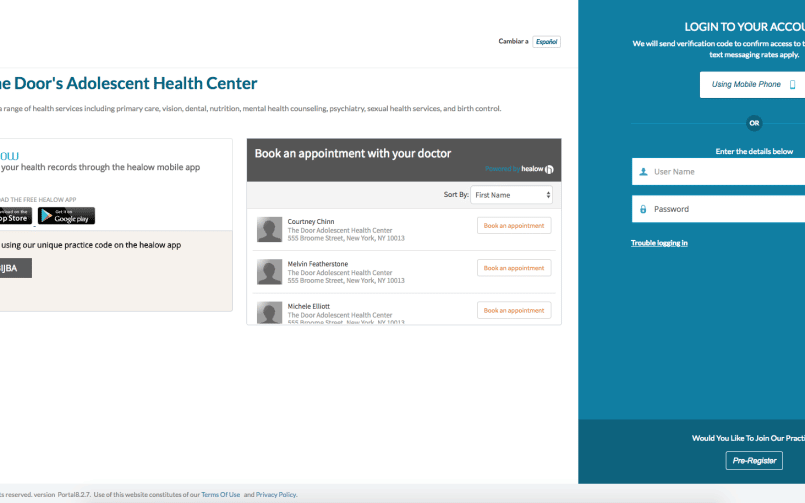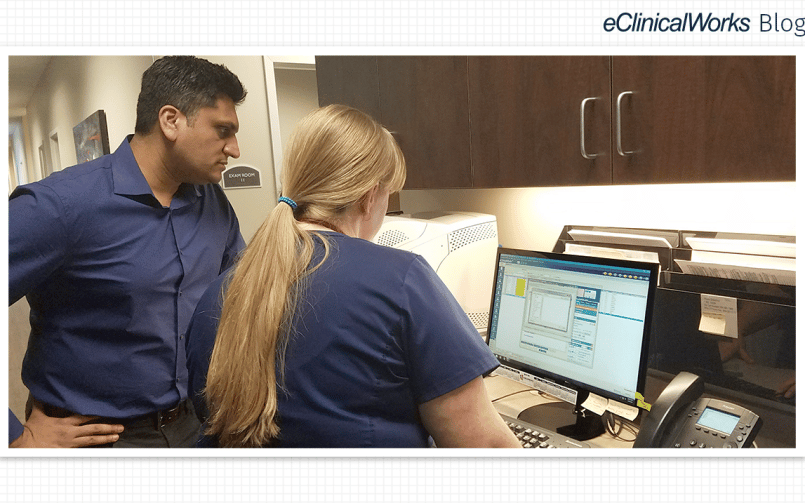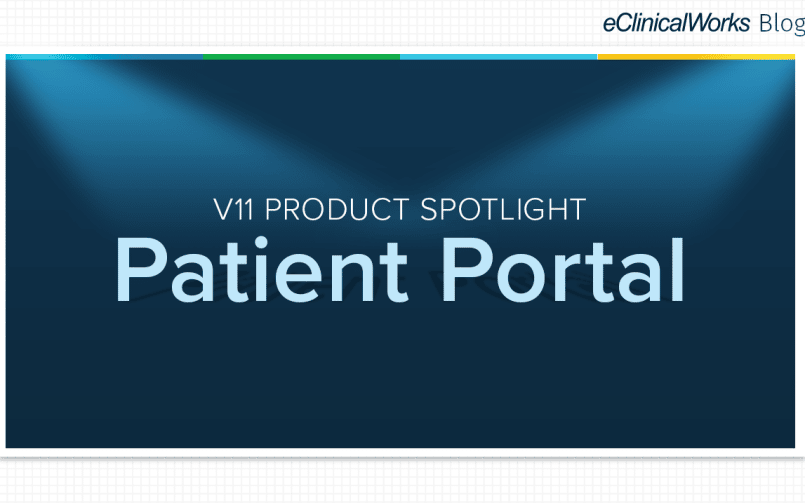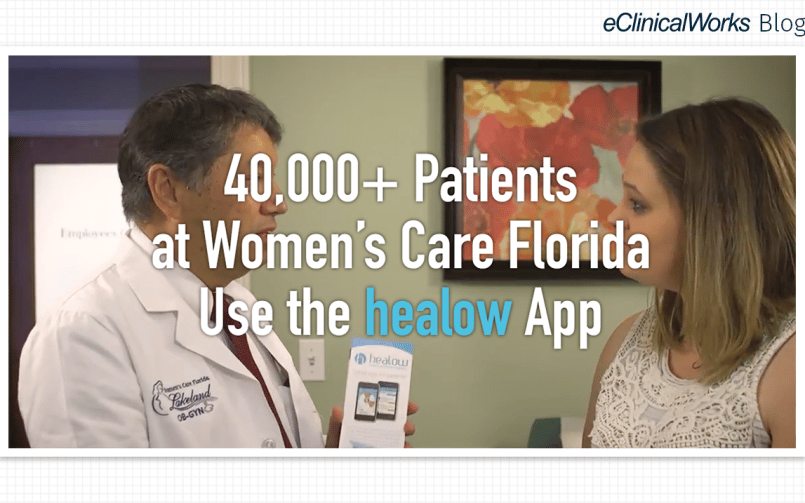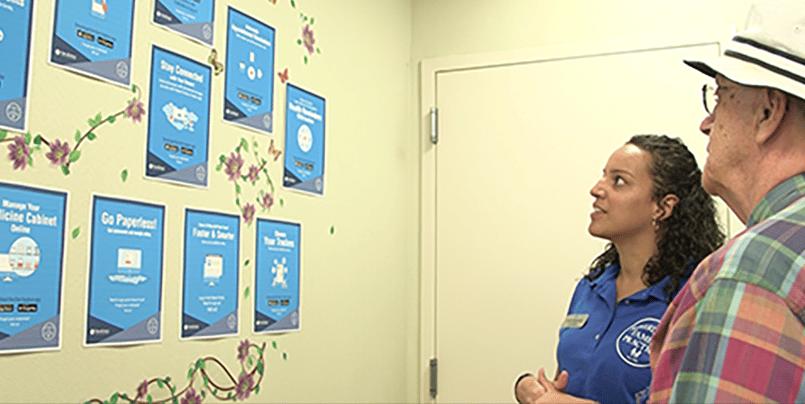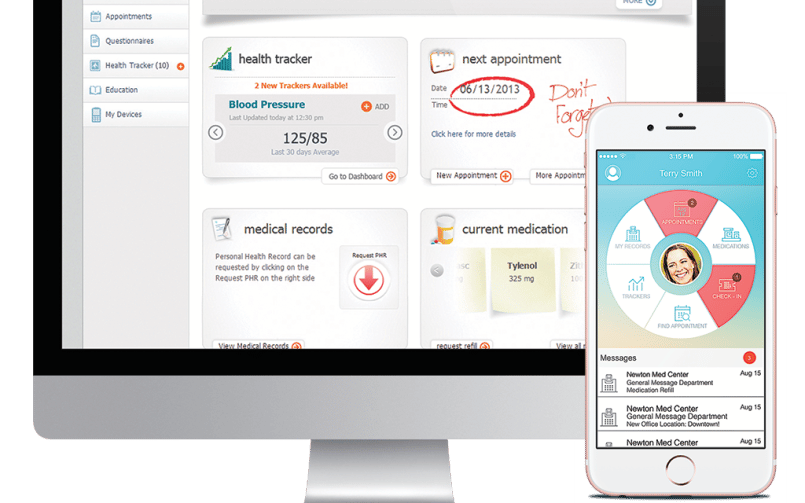Revolutionizing Work-Life Balance with a Smart AI-Driven EHR
- 14 March 2024
- Blog
eClinicalWorks

The role of an AI medical scribe is becoming more and more significant in the clinical setting. AI medical scribes within EHR systems reduce the time providers spend on documentation and charting activities outside clinic hours, leading to better work-life balance. Last year, eClinicalWorks® introduced a series of AI functionalities to reshape the future of EHRs and announced its integration with AI medical scribe Sunoh.ai.
This blog explores the real-world impact of AI-enhanced record keeping—from reducing time spent on administrative tasks that often lead to physician burnout to providing frontline workers with actionable insights for patient care.
Tackling Physician Burnout
Workload can triple the risk of burnout in healthcare. One of the main reasons for this is the excessive time spent on notetaking and paperwork. Advanced AI scribes like Sunoh.ai automate the clinical notetaking process. They use voice recognition technology and natural language processing tools to transcribe patient-provider conversations. By automating note-taking, AI medical scribes significantly mitigate burnout by minimizing overtime and documentation errors. This transformative technology is helping providers spend less time at work and more time at home.
Streamlining Administrative Tasks
The sheer volume of data generated in healthcare systems is enormous. Manually processing this data takes a lot of time and leaves room for errors. The rapid pace of AI data processing increases efficiency, freeing providers from this administrative burden to focus on patients.
The AI enhancements integrated within eCW EHR also bring these benefits to the table:
- Accelerating the taking of visit notes with Sunoh, ambient listening technology that turns patient-provider conversations into clinical documentation.
- Streamlining your workflows from scheduling to administrative tasks with Large Language Models and Generative AI integration into the EMR.
- Revolutionizing your fax inbox management with Image AI, which automatically matches faxes to patients and interprets their purpose.
- Reducing time spent on manual, repetitive tasks through Automated Playlists with Robotic Process Automation.
- Turning long, complex medical documents into easy-to-read summaries with AI Assistant for PRISMA.
Enhancing Patient Engagement
AI tools integrated with EHRs are key to enhancing patient engagement. They provide a platform for interactive and real-time communication with patients, improving patient visits and the healthcare experience.
Here’s how AI Medial Scribe Sunoh enhances the patient visit experience:
- Listens to the conversation: Sunoh listens to patient-provider conversations to help document clinical information accurately and efficiently.
- Generates a dialogue flow: AI and voice recognition technology help create a transcript of the dialogue between patients and providers.
- Creates clinical documentation: Content is categorized into Progress Note sections, allowing for reviewing and importing relevant data.
- Assists with order entry: Labs, imaging, procedures, medication orders, and follow-up visits are summarized.
- Summarizes content for review: The process allows providers to review content, modify if necessary, and merge pre-configured defaults with one click.
Advancing Telehealth Services
Telehealth is an excellent example of how AI is transforming healthcare delivery. AI remotely provides real-time, personalized, and interactive healthcare services – a testament to its transformative potential and role in shaping healthcare’s future. For instance, Sunoh is compatible with healow® telehealth solutions.
The benefits of using healow TeleVisits™ are:
- Allowing providers to care for patients anytime, anywhere, on any device from the healow platform.
- TeleVisits are effective for primary and specialty medicine and are perfect for routine, follow-up, and check-in visits or when patients cannot have a physical office visit.
Accelerating Decision-Making
AI empowers healthcare providers with access to extensive datasets. By accessing and analyzing relevant data rapidly with AI, healthcare providers can make quicker decisions for timely patient care.
In that vein, AI has taken PRISMA to a whole new level. PRISMA is the industry’s first health information search engine, bringing together medical records from small clinics to large hospital systems. AI Assistant for PRISMA enhances interoperability by providing quick access to concise highlights of a patient’s medical history.
Using AI to search for a patient’s medical records:
- Enables a better understanding of the patient’s medical history.
- Helps prepare the provider for appointments.
- Provides insights into treatment plans.
- Saves patients from additional questions and procedures.
These AI-powered tools, integrated within EHR, streamline administrative tasks, enhance patient engagement, and support data-driven decision-making. The result is improved patient care, a better work-life balance for providers, and a more efficient healthcare system.
To learn more, visit www.eclinicalworks.com.









